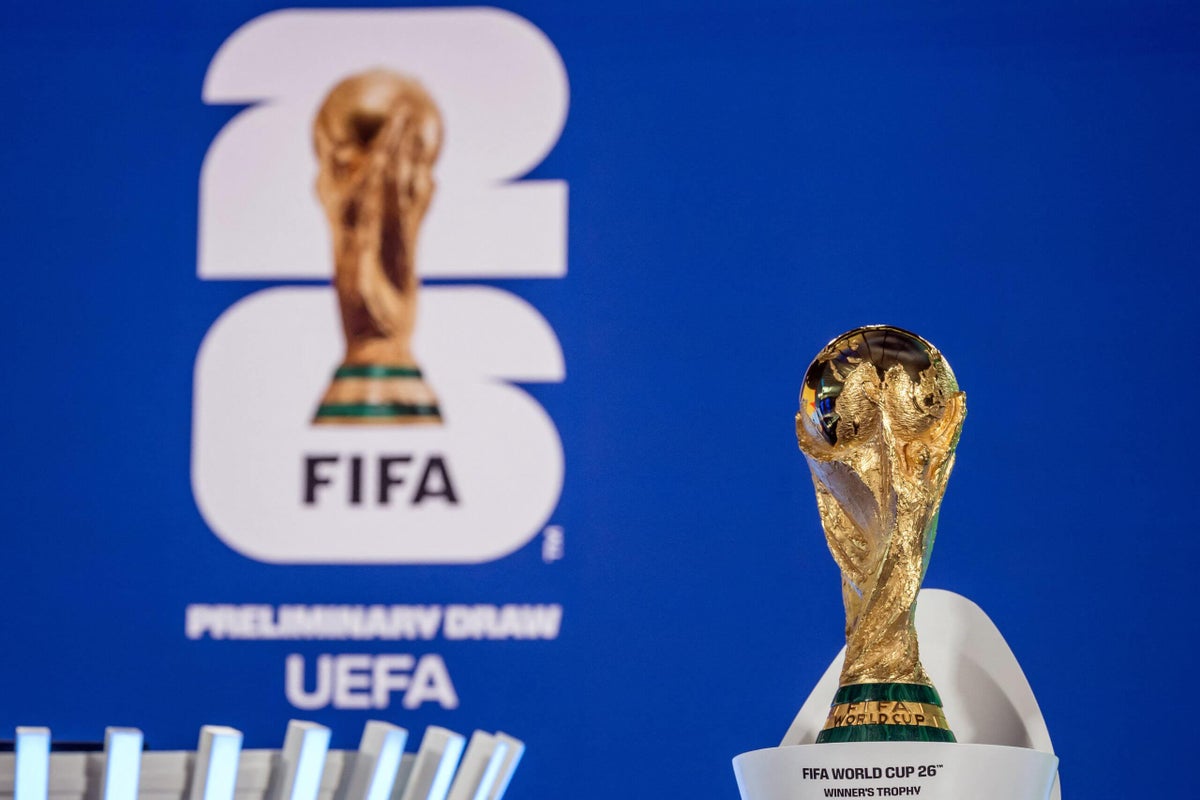FIFA’s decision to drop messages explicitly challenging racism and discrimination at the Club World Cup “signals a human rights risk” for next year’s men’s World Cup finals in the United States, according to a coalition of 15 human rights groups.
The Athletic reported on June 16 that no videos, signage or marketing assets referencing anti-racism and anti-discrimination slogans would be displayed in U.S. venues hosting the FIFA Club World Cup, despite such promotional content being developed ahead of the tournament.
The Dignity 2026 Coalition — via Human Rights Watch, a founding member — said FIFA, world football’s governing body, should publish the reasons for doing so and should reinstate the messaging for the rest of the tournament, as well as for next summer’s World Cup.
FIFA did display the messaging on Wednesday, June 18, to mark International Day for Countering Hate Speech, but that has not been replicated throughout the competition.
Earlier this week, supporters at Monterrey’s Club World Cup last-16 game against Borussia Dortmund were warned by FIFA that the game could be suspended after homophobic chants were heard repeatedly during the second half. The match finished before any further action was taken.
There have not been any announcements from FIFA within stadiums explaining the organisation’s anti-racism protocols or its “universal anti-racism gesture” which was rolled out in September last year and was supposed to be applied to all competitions.
The lack of messaging stands in contrast to recent FIFA-run tournaments when messages were displayed on in-stadium screens and across social media, such as at the 2023 Women’s World Cup held in Australia and New Zealand and the 2022 men’s World Cup in Qatar.
The Dignity 2026 coalition contains 15 national-level human rights groups, labour unions and worker networks, along with fans, athletes’ organisations and migrant rights groups, which represent the interests of affected communities around next summer’s men’s World Cup.
(Alex Grimm/Getty Images)
FIFA’s decision not to carry such messaging for this summer’s tournament has been described as an “inexplicable and inexcusable step backward” by Minky Worden, director of global initiatives at Human Rights Watch.
Bailey Brown, president of the leading North American alliance of fan groups the Independent Supporters Council, said FIFA were risking “normalising discrimination and undermining the progress made in soccer in recent years” by scaling back on their messaging.
“FIFA’s retreat from basic anti-discrimination commitments sends a chilling message that discrimination will be tolerated,” said Andrea Florence, executive director of the Sport & Rights Alliance.
FIFA’s decision was criticised as “a shocking setback for efforts to end homophobia and transphobia in sport” by Hudson Taylor, executive director of Athlete Ally, which fights for equal access, opportunity, and experience in sports.
FIFA was asked to “clarify the reasons for this sudden reversal and to reaffirm its commitment to human rights, anti-racism, and equality,” by Jamal R. Watkins, senior vice president of strategy and advancement at the NAACP, an American civil rights organization for African Americans.
In its statement to The Athletic last month, FIFA did not explain why they have reduced their in-tournament messaging for this competition in the United States, if competing clubs had been consulted on the matter or if the slogans would return for the 2026 men’s World Cup, which will be held across the U.S., Mexico and Canada.
A FIFA spokesperson said: “FIFA has a firm, zero-tolerance stance against all forms of discrimination and racism. This commitment was recently reinforced through the unanimous approval by the FIFA Council of the revised FIFA Disciplinary Code, which introduces new measures to fight racist abuse — including increased minimum bans for racist incidents and enhanced financial penalties as duly informed to the 75th FIFA Congress in Asuncion in May 2025.”
FIFA also said its three-step anti-discrimination procedure is in effect should incidents occur, while adding that a social media protection service is available to players and match officials, which helps hide abuse from their social media channels.
(Top photo: Fabrice Coffrini/AFP via Getty Images)
